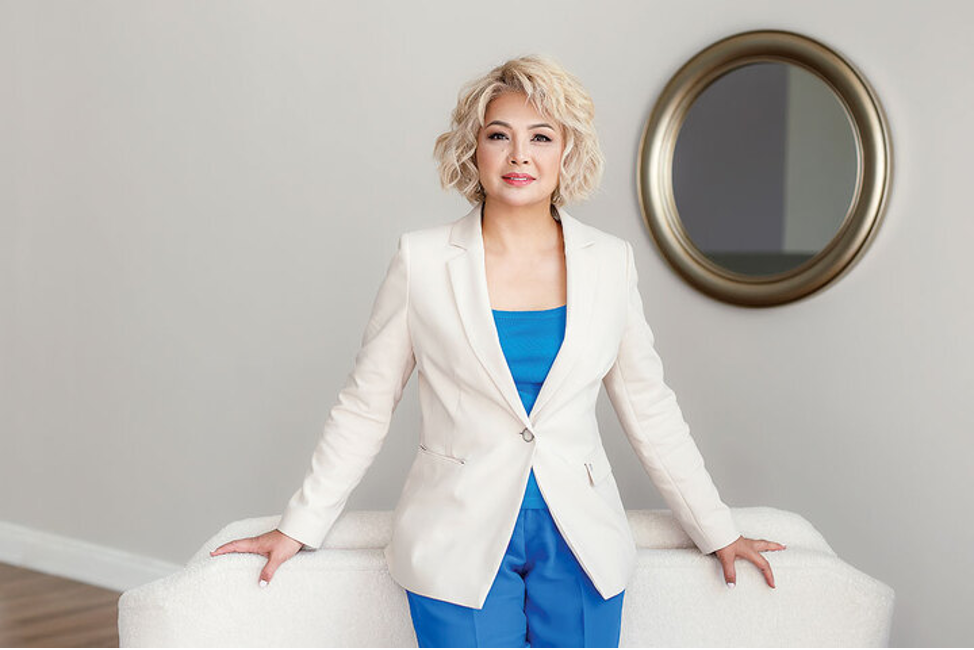
Nurbank, average in asset size, is one of the few small banks that survived the financial crisis of 2008 and the challenges of recent years. This was likely aided by the bank's unique strategy. On one side, Nurbank leans towards a moderate strategy, indicative of evolutionary development. On the other hand, the bank enhances operations, promptly responding to modern demands and challenges.
Within the approved strategy until 2025, Nurbank remains a universal classical bank. The foundation of development, as before, is an individualized approach to clients, maintaining asset quality, a balanced approach to risk assessment, implementing progressive banking technologies, and meticulously adhering to compliance requirements. Meanwhile, the events of 2020 catalyzed the growth of digital sales channels and transition to digital standards in banking. The bank is open to adopting modern technologies. In 2022, Nurbank was part of the bank group participating in the pilot project for electronic money issuance. This allowed joining flagship banks in the market for implementing advanced banking services. The bank's main clients remain the retail sector and corporate clients. Plans include strengthening positions in the retail block and SMEs.
In addition to stability and adaptation to market trends, Nurbank is another women's banking story. In late 2021, Gulnara Musataeva took over the bank. She replaced Eldar Sarsenov, who left the post upon becoming a major shareholder of the bank. By education, Musataeva is a legal expert. She graduated from Karaganda State University, worked as a notary, held the position of senior legal counsel at the legal department of the National Bank, and was also the chief legal counsel and head of department at the People's Bank of Kazakhstan. In May 2011, Musataeva joined Nurbank as a managing director. Nine years later, she became deputy chairman of the board, and a year later, in 2021, she took the position of head of the bank.
The new leader had the task of increasing loan volumes, creating a solid foundation for digital business development through a classical approach across three areas—people, processes, technology. All while maintaining the current business momentum. Retaining and increasing the bank's loan offerings was not easy. Kazakhstan faced high, double-digit inflation adversely affecting loan rates. While retail clients maintained a high appetite for credit, the corporate sector refrained from borrowing, anticipating rate reductions.
The strategy to increase the loan portfolio involved more active participation in government programs for subsidizing SME credits. Nurbank is a partner of the Damu Entrepreneurship Development Fund within the implementation of the Business Roadmap 2020 program. It has been supporting state programs for SME development for over 15 years. The bank is also a partner of the Development Bank of Kazakhstan in financing large corporate clients in the manufacturing industry.
Nurbank's corporate loan portfolio includes projects in the food industry, automotive transport, and construction. By early March 2024, the bank’s loan portfolio was estimated at 279.5 billion tenge. In the total loan portfolio, SMEs account for 30%. Loans are issued to enterprises in services, trade, agriculture, food production, and construction. ‘The SME block's range of work is exclusive, as we lend to a diverse array of business projects: from small cafes to manufacturing workshops,’ Musataeva noted in an interview. The bank's total funding under various state programs supporting entrepreneurship exceeded 77 billion tenge.
The bank’s loan portfolio could be larger. But clients need long-term funds. Investment projects are long-term and require substantial amounts of financing. However, Damu program opportunities are limited by the term and loan size. For banks, lending to corporate sector clients remains challenging due to a lack of long-term funding sources. Banks receive funding by attracting deposits.
To expand lending for investment projects, Kazakhstan has legislatively allowed syndicated loans. These are interesting as banks pool resources and share risks to finance large projects. The syndication mechanism gives the real sector access to long-term funds. Since May last year, Nurbank has been building expertise in syndicated lending, aiming to become one of the main creditors by this program. In December 2023, the first syndicate of three banks—Nurbank, Bank of Central Credit, and Development Bank of Kazakhstan—signed a tripartite agreement to provide financing under a syndicated loan for RG Brands Kazakhstan. Finance will be directed towards expanding capacities to increase new production lines and export products to the Republic of Uzbekistan. The total financing amounts to 30.4 billion tenge. ‘Syndicates are efficient through their cooperation, as a single bank is not always willing to allocate a large amount for financing substantial projects,’ noted the head of Nurbank during the document signing.
The female nature stands out, and it is notable that "women's" banks more often engage in lending to female entrepreneurs. Nurbank also notes that responsible and financially disciplined women become growth points for stable and reliable SMEs. In the SME loan portfolio of the bank, loans to women entrepreneurs make up about 12%, with such clients exceeding 65.6%.
Nurbank also emphasizes financing socially significant projects—medical and educational institutions and green technologies. Lending is aimed at increasing the efficiency of existing natural resources, reducing the negative environmental impact, improving energy efficiency, conserving energy, and mitigating climate change and adapting to it. For Kazakhstan, the need for financing such projects will grow annually.
Source: https://forbes.kz/articles/kak-kredity-zhenskomu-biznesu-stali-tochkoy-rosta-nurbanka